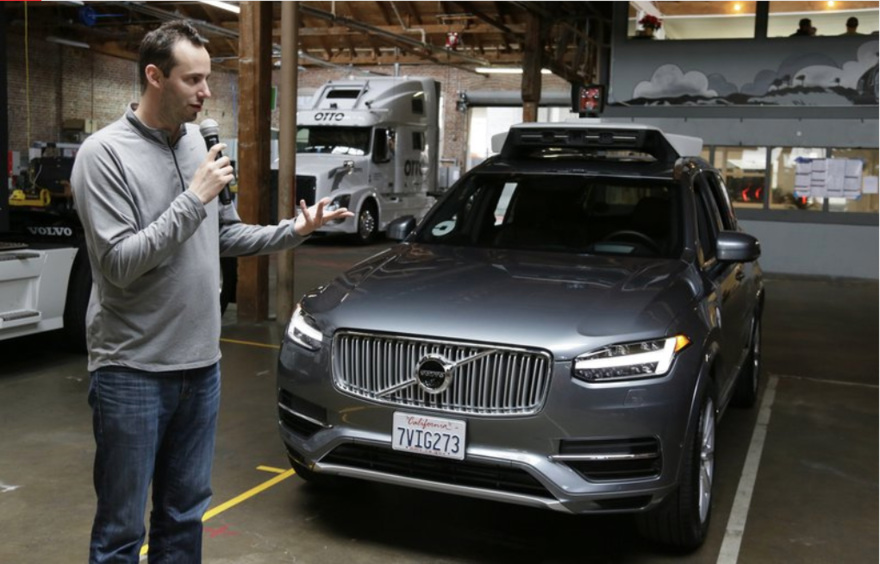With the stakes getting higher to capture the market for autonomous vehicles, it was probably only a matter of time before someone was accused of stealing trade secrets from one company before joining a rival. That was the case Tuesday, where a former Google engineer was charged with stealing self-driving car technology from the company shortly before joining Uber’s efforts to build autonomous vehicles, according to an Associated Press report.
The AP report says the indictment, filed by the U.S. attorney’s office in San Jose, California, stems from a lawsuit filed in 2017 by Waymo, an autonomous vehicle technology company spun off from Google. Uber reportedly agreed to settle the case for $245 million last year, but the presiding judge recommended initiating a criminal investigation after seeing sufficient evidence to conclude a theft may have occurred.
The engineer, Anthony Levandowski, was charged with 33 counts of trade secrets theft. Each count carries a penalty of up to 10 years in prison and a $250,000 fine, or $8.25 million if convicted of all counts, according to the report.
Miles Ehrlich, one of Levandowski’s attorneys, maintains his client is innocent. “He didn’t steal anything, from anyone,” Ehrlich was reported as saying. “This case rehashes claims already discredited in a civil case that settled more than a year.”
According to the report, prosecutors have not disclosed whether the ongoing probe identifies Uber and former CEO Travis Kalanick as targets. Prosecutors say Google, Waymo and Uber cooperated in the investigation.
The investigation is the latest black mark for Uber, which has dealt with several scandals in recent years, including allegations of sexual harassment and a data breach that compromised the personal information of passengers and drivers. The fallout has been evident in tumbling stock prices since an initial public stock offering in May.
The suit also comes at a time when some companies involved in autonomous vehicle technology, including Waymo, have had a change of heart in sharing data on their autonomous vehicle efforts with researchers. However, that sharing of information is not likely to include proprietary IP related to technology, as potentially hundreds of millions of dollars remain at stake there.
According to the AP report, the indictment accuses Levandowski, 39, of stealing years of top-secret information, which prosecutors say included breakthroughs in LiDAR, considered key technology in enabling autonomous vehicles to detect people and objects around them.
During the Waymo trial, former Uber CEO Kalanick reportedly denied ever resorting to stealing technology from Google, whom he believed was an ally until he began to suspect the company intended to launch its own ride-hailing service comprising its own robotic vehicles.
Kalanick, however, also reportedly testified that Uber’s efforts at a self-driving car fleet prompted him to woo Levandowski in 2015 while he was still at Google. Levandowski left early in 2016 to devote his time to Otto, a self-driving truck company he started with another former Google employee, Lior Ron. Uber acquired Otto later in 2016 for $680 million.
Waymo, spun off from Google in 2016, reportedly alleged that Levandowski downloaded 14,000 documents containing its trade secrets before he left for Otto. Uber reportedly denied it knew about those documents, but eventually fired Levandowsk after he repeatedly asserted his constitutional right against self-incrimination leading up to the trial.
After Levandowski left Uber, he reportedly started another self-driving startup called Pronto, which said Tuesday Levandowski would no longer be its CEO as the legal case proceeds.







